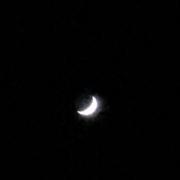
For a long time scientists have been trying to find if humans are the only living things in this universe, however, in recent weeks astrobiologists have found phosphine in the clouds of Venus.
As explained by my physicts teacher, phosphine is a type of bacteria that is associated with life on Earth, where it can be found in animal guts, oxygen-starved enviroments and other areas. With the discovery of it being found in the acidic clouds 50km above the surface of Venus gives hope that there is life behond Earth, yet it still a surprising discovery for most. Venus is a planet that has a surface temperature of over 400 degrees and an atmosphere of 96% carbon dioxide, leaving it an planet no scientist expected life to exist.
This discovery has led to many questions, the most popular being how and why has phosphine been produced on Venus. Professors such as Jane Greaves, from Cardiff university, has been holding investigations and obseravtions to find answers, yet her and her colleages haven't found anything.
A discovery like this could lead to more advancements in the pursue of finding life beyond ourselves and encourage young people, such as myslef, to learn more about subjects like these and maybe take them up as a profession in the future.



























